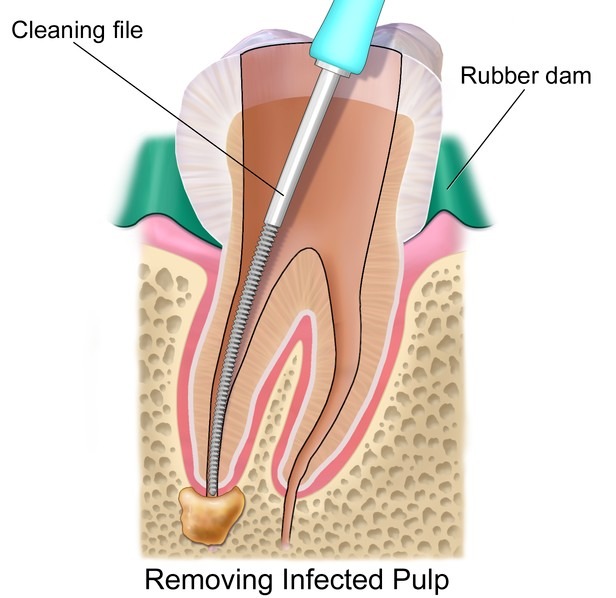Dental pulp

Dental pulp disease
The disease of tooth hard tissue is called dental body disease. In a broad sense, dental body disease also includes dental pulp disease. Caries is a progressive lesion of tooth hard tissue caused by the combined action of various factors in the oral cavity, which is manifested in the demineralization of inorganic matter and the decomposition of organic matter. With the development of the disease course, there is an evolution process from color change to the formation of substantive lesion. The World Health Organization has listed it as one of the three key prevention and treatment diseases of mankind together with cancer and cardiovascular diseases.
1. Microbial infection is the most important pathogenic factor of dental pulp disease
The ways of bacterial infection are:
(1) Infection through tooth defects, such as deep caries, tooth trauma, severe wear and other serious tooth defects, bacteria and toxins invade the dental pulp through dentin tubules or pulp penetration points.
(2) After periodontal infection, bacteria and toxins enter the dental pulp through the periodontal pocket, through the apical foramen and lateral accessory root canal.
(3) Blood borne infections, bacteria and toxins invading dental pulp through blood are very rare, but not impossible.
2. Chemical stimulation
(1) Disinfection drugs after drug stimulation and hole making, such as phenols, can stimulate dental pulp.
(2) The filling material can stimulate the deep hole, the direct use of zinc phosphate cement as the base, and the direct filling of composite resin may stimulate the dental pulp.
3. Physical stimulation
(1) Temperature stimulation: if a pneumatic turbine is used during hole making, water must be sprayed to cool down, otherwise it will lead to congestion and bleeding of dental pulp and inflammation.
(2) Current stimulation: if there is contact between two different metal restorations in the oral cavity, the potential difference can be generated through saliva, which can stimulate the dental pulp to a certain extent.
(3) Effect of air pressure change: in high-altitude aircraft or deep-water diving, air pressure change can lead to acute attack of dental pulp lesions.
(4) trauma and diabetes can cause dental pulp degeneration, tumor can also spread to the pulp, and dental pulp disease caused by blood borne infection is very rare.







